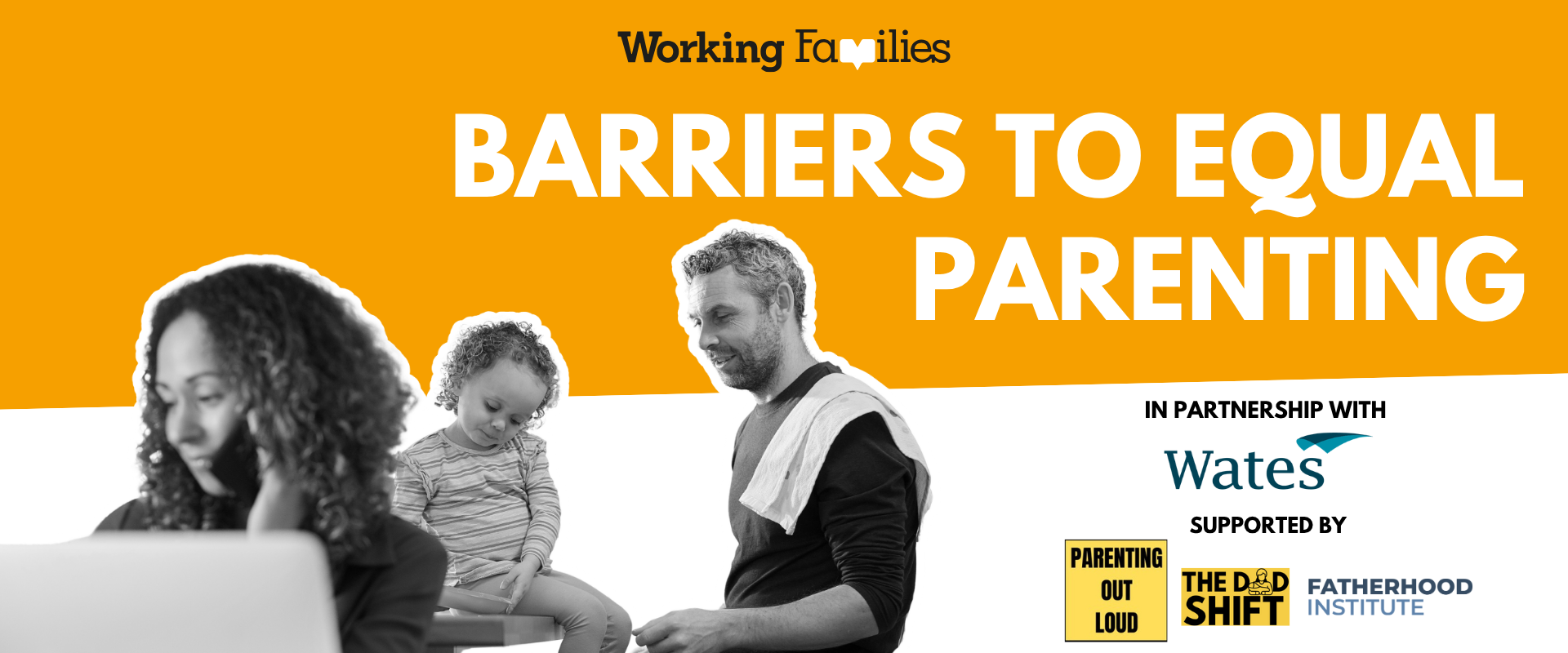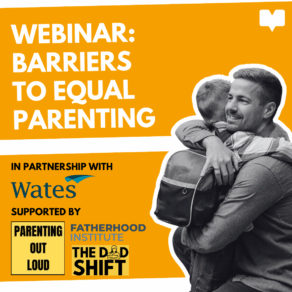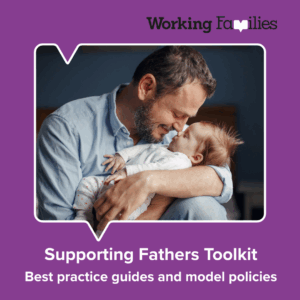Barriers to Equal Parenting – new research
Published: 13 Oct 2025

Half of working dads still feel ‘nervous’ asking for time off to care for their children
When it comes to attitudes about caregiving, there’s still got a long way to go before men and women are seen as equals. Our latest research, in partnership with Wates Group, lays bare how perceptions of parenting are holding back both fathers and mothers.
We spoke to 5,000 working dads about how they feel about asking their employer for flexibility or parental leave to care for their children. Their answers revealed what many already suspected – that there are different expectations when it comes to men and women caring for their children, and this is having a damaging effect on families.
Out-of-date attitudes
Despite three-quarters (74%) of fathers wanting to embrace equal parenting, they feel their requests to take time away from work would be met with negativity rooted in stigma surrounding men taking on caring roles. Over 4 in 10 dads (44%) felt that mothers are more likely to be given flexibility to manage childcare. Rigid thinking about parenting roles are out of touch with the reality of modern family life that relies on both parents working and caring equally, or else it’s the woman whose career pays the price.
And yet, questions like ‘Where’s your wife’ are still being asked of 2 in 10 fathers, implying it’s not their job to look after their children. Two-thirds of men believe they would be granted flexibility, but not without having to jump through hoops of justifying why, with questions asked about the urgency of care (20%) and making alternative arrangements (19%). And when 6 in 10 men say they feel consistently judged for prioritising family, it’s no wonder that half feel anxious about asking for flexibility.
Fear of potential consequences
Men share the same concerns as women about the impact on their career progression or losing their job for taking time with their new baby. For the 7 in 10 men that feel pressure to be the breadwinner, it makes sense that they would not want to jeopardise the family’s main source of income at such a crucial time. The very real fear of losing status and income, as women’s experience shows, is a logical reason for over a third (35%) of men not taking as much paternity leave as they would have liked, and 300 fathers (6%) taking no leave whatsoever, undoubtedly placing both a physical and mental strain on the mother. Rooting out the presumptions that tie caregiving to lack of commitment is foundational to creating a society where work and family life integrate successfully.
Lose-lose situation
The lack of support in the workplace to enable men to lean into parenting means there are no winners, as families feel the real-world effects. Almost 8 in 10 (78%) dads told us their situation has caused a strain on the health of themselves, their partner or their child. A quarter of dads feel they have missed out on time with their child or been absent for key events in their child’s life. When we talk about father involvement, it’s not just opportunity to build a bond early on that puts child development on the best track, it also causes a quarter of dads to feel stress at not meeting their child’s needs.
There is also, of course, a ripple effect for women when men are denied the opportunity to be more involved. 2 in 10 men told us they have had to rely on their partner having more time off or even changing their job to manage childcare. Without support, the burden of caring will continue to fall to the woman, with a well-evidenced knock-on effect in the form of the motherhood penalty.
Positive outcomes
It’s not all bad news, in fact, there are some causes for optimism. Almost 9 in 10 men (88%) said they feel able to talk about balancing work and being a father in their workplace, which is a solid foundation for future change. And where men have been able to access flexible working, the benefits were resounding. 4 in 10 men had been able to spend more quality time with their child or be there when they were sick or in an emergency, and 37% had been able to provide more support for their partner.
Seeking solutions
The research reflects how much ideas about modern parenting have shifted, and that it is policies and attitudes in the workplace that have some catching up to do. Dads in the research are positive about a number of solutions, from access to flexibility (30%), to equal parental leave (31%), positive role models of working dads in leadership (28%) and more open conversations about fatherhood in the workplace (29%). The conversation around equal parenting is relatively new, and stepping outside embedded thinking is a process that takes time; that there is a range of solutions favoured by dads in the survey reminds us that prescriptive, one-size-fits-all remedies don’t address the breadth of fatherhood experiences. Achieving equality necessitates multi-pronged approach, that involves policymakers, employers and parents challenging the status quo that currently isn’t working for anyone.

Barriers to Equal Parenting
This campaign shines a light on the barriers to equal parenting, elevates dads’ voices, and makes the case for stronger paternity leave rights and supportive workplace cultures.

Barriers to Equal Parenting – webinar
Join Working Families and partner Wates Group, along with Parenting Out Loud and The Dad Shift, for a powerful conversation on how employers can play a leading role in removing the barriers to equal parenting.
-

Supporting Fathers Toolkit
£199.00 + VAT This ‘Supporting Fathers Toolkit’ contains the following documents: Creating a culture that supports fathers and families – employer guide Top Tips for supporting expectant fathers and partners…Add to basket